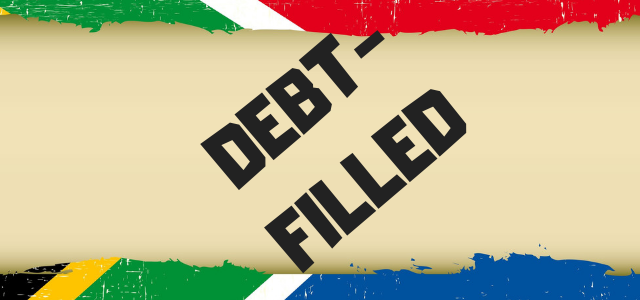The proof is in the pudding. Many South Africans are forming part of a modern-day debt-filled culture. And, whether they realise it or not, it is undeniably real and destructive for themselves, their families and the country’s macroeconomy.
For all the proud South Africans this is perhaps a bit of a bold statement to make, especially since it is Heritage Month, and, Heritage (aka Proudly South African) Day is right around the corner. BUT it is time to face the facts. It is in no way soothing to the ear to hear that the current consumer culture, also referring to the heritage or legacy being left for future generations in South Africa, is a debt-filled one.
- South Africa has over 25 million credit-active consumers – according to the National Credit Regulator (NCR).
- Over nine million South African consumers sit with impaired credit records (as stated by the NCR).
- The current unemployment rate is also staggering. Editor, Rob Rose of the Financial Mail expresses his concerns how 9-million unemployed South Africans can qualify for credit (loans). According to the 2018 Quarter 1 statistics provided by Statistics South Africa (Stats SA) – The graduate unemployment rate for 15 to 24-year-olds was 33,5%, 10,2% was among the 25 to 34-year-olds, and the rate among adults, aged 35 to 64 years, was 4,7%. If the unemployment rate in South Africa is so high, how do South Africans keep up with payments, especially living expenses these days? Are they making use of more credit perhaps?
- The recent DebtSafe Reckless Lending Indicator points out that 40% of inspected credit agreements appear to be reckless. Although the indicator will be adjusted accordingly, with the cooperation of creditors mentioned in the report, Potgieter highlights that credit is still easily granted. He says it is evident via an SMS, email, mobile app or phone call that credit has become readily available for the consumer mostly everywhere.
Does this not paint a concerning picture? The crux question for South Africans therefore is: Are they really making sure that they are able to leave a proper and healthy ‘financial legacy’ for generations to come? How can they do this exactly?
First of all – consumers have to be able to identify their reality or problem, namely those circumstances that cause a sudden change and disruption in their lives.
Life happens and in many drastic or emergency type of scenarios South Africans can find themselves smothered in debt before they’ve even had the chance to realise what their financial situation has escalated to. Circumstances and an all-too-familiar realism can include the following:
- Retrenchment and sudden unemployment,
- Divorce and excessive financial strain,
- The continuous effect of fuel hikes,
- The implications of April’s VAT increase announcement,
- High food prices and inability to keep up with living costs,
- An unexpected medical situation and/or emergency expenses.
And, secondly, South Africans should be proactive and avoid one, or most, of these mentioned life events that can suddenly interrupt their ‘financial world’.
As probable solutions, DebtSafe recommends the following to make sure South Africans can indeed set forth a good ‘financial legacy’:
- The unnegotiable emergency fund – Yes, the economic situation is currently tough but consumers have to try high and low to add savings to their emergency fund, even if it is R200 at first. Every bit helps. When there is more cash to use during an unforeseen event, less debt will be added to their current debt pile(s).
- Credit Linked / Life Insurance is important – South Africans need to make sure that their debt is ‘insured’. They should consider credit linked insurance that covers certain credit / debt repayments. This will enable them to take care of themselves and their loved ones when the unpredictable happens (such as critical illness, disability or death).
- Get professional help – The concept of over-indebtedness is not only gaining familiarity these days but has heart-wrenching consequences. If consumers have tried everything in their power to get rid of debt and are still unsuccessful – they should get professional help. If they attain a stable income each month, they can consider registered debt counsellors as they are experts in the debt counselling field.
The short and sweet of consumers’ ‘financial reality’ is, that debt is invading South Africa’s culture and it is NOT a comforting trend at all. Consumers should strategically plan their way to improve their financial situations and withstand unexpected, financially-disruptive events. Their proactive nature will ensure themselves a top-notch ‘financial legacy’ for generations to come.
